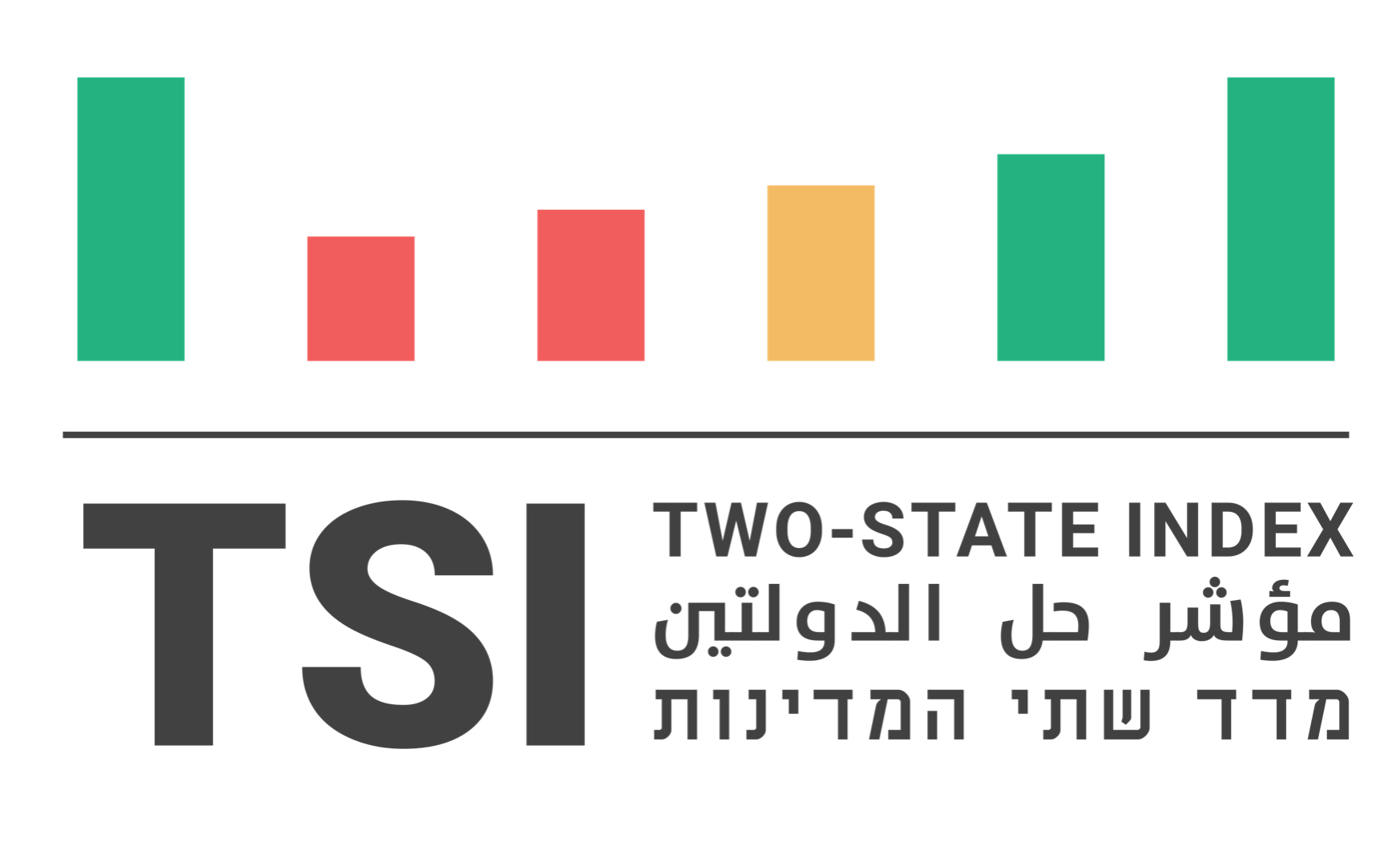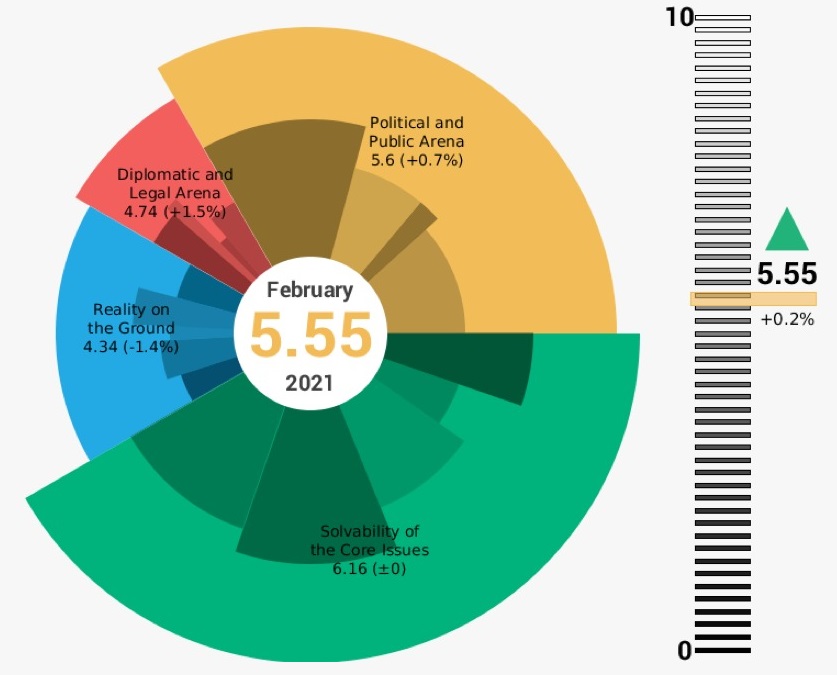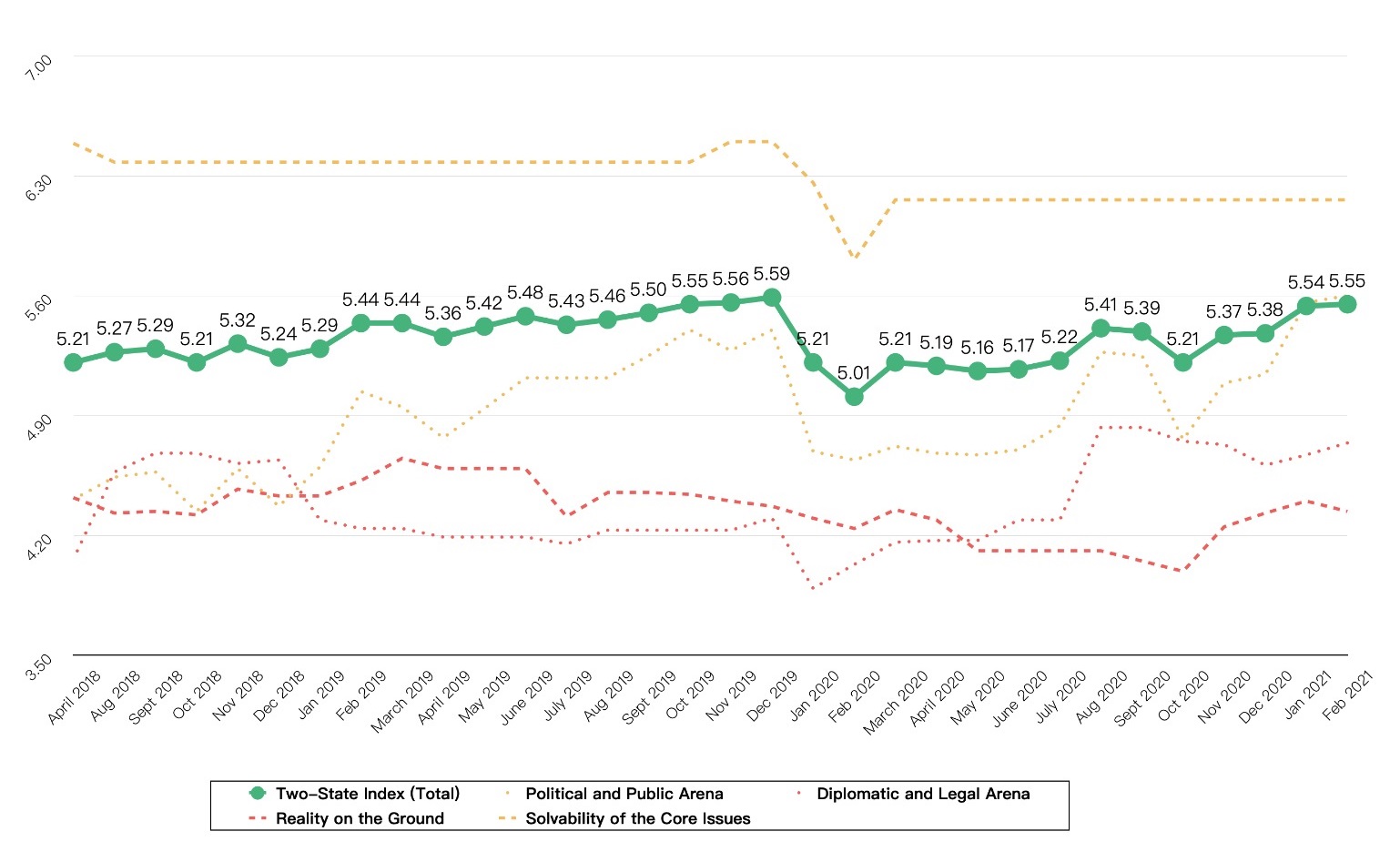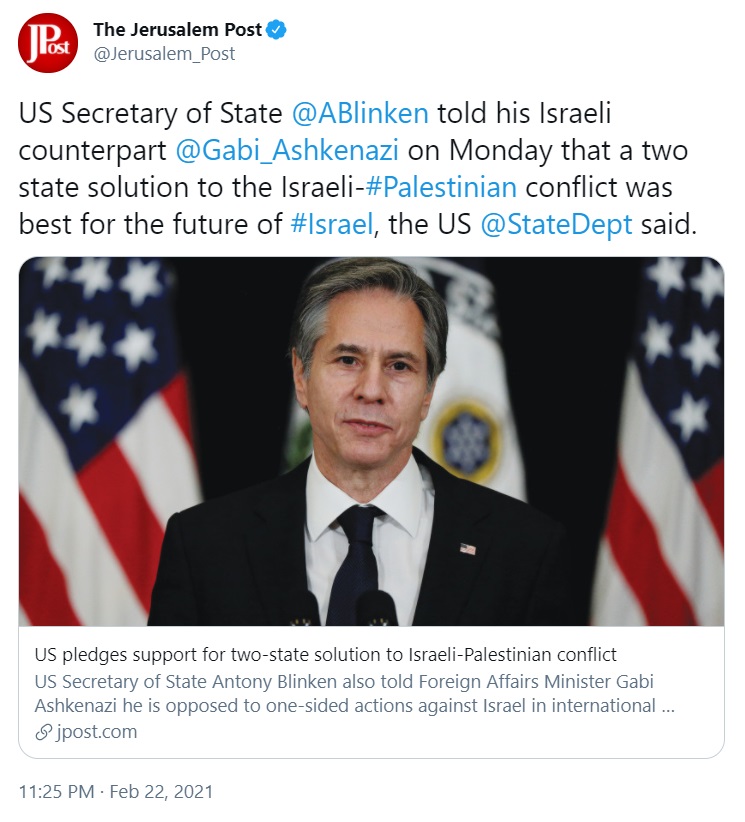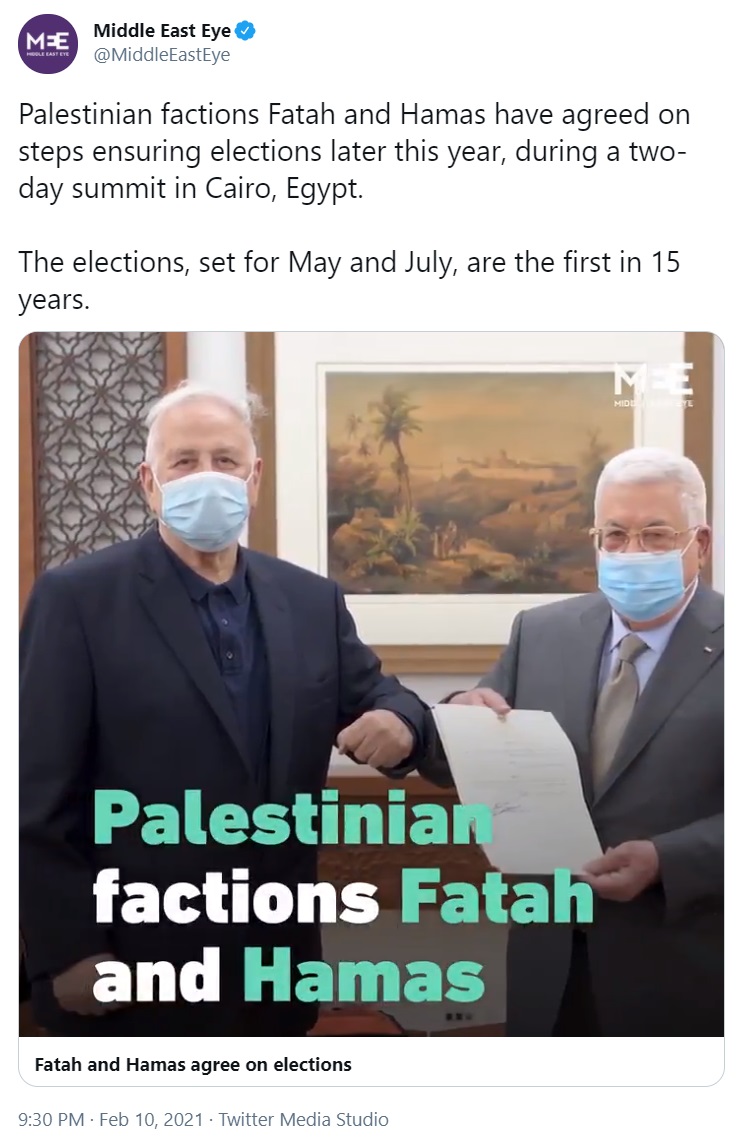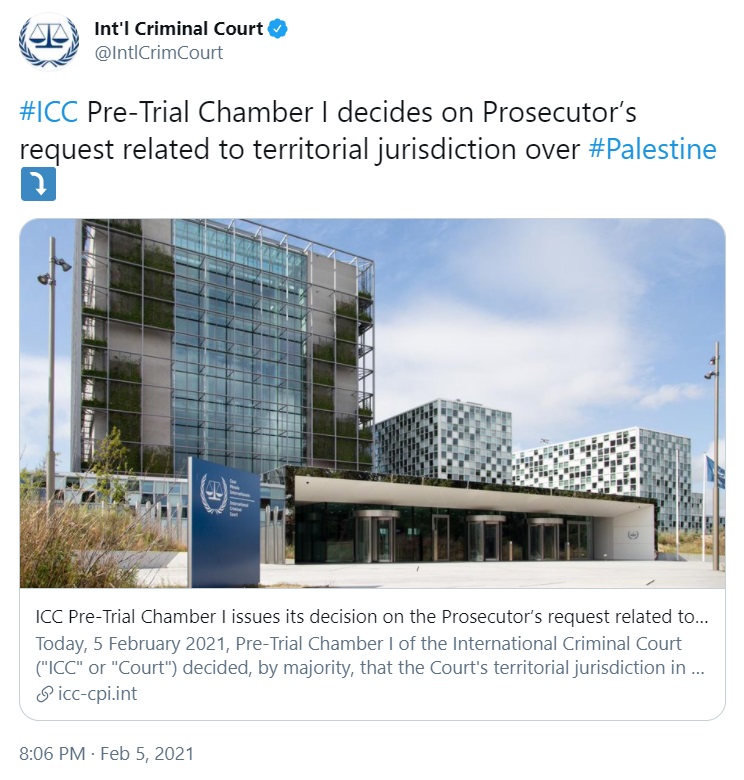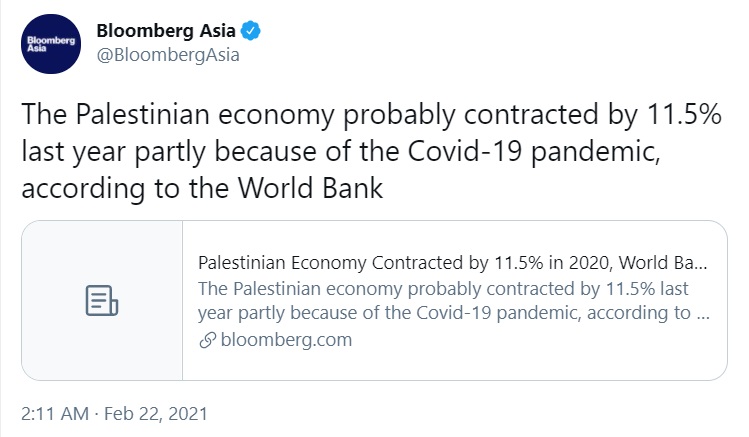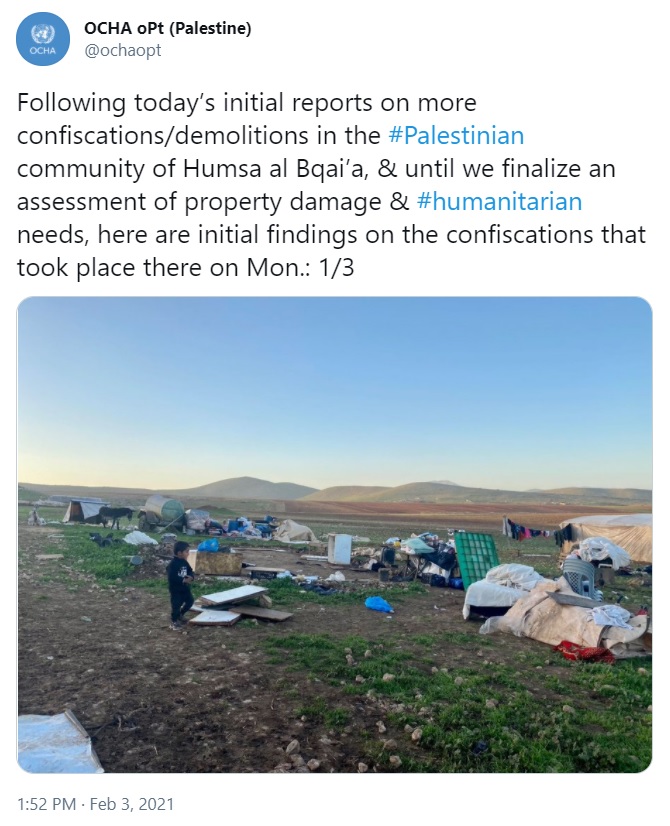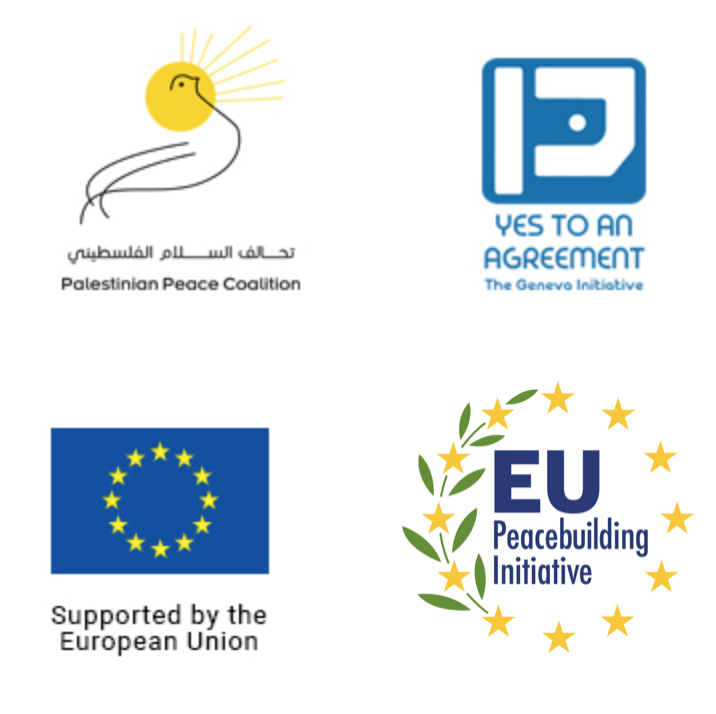February, in short: - US begins implementation and formulation of new Israel-Palestine policies: Rollback of Trump administration’s actions underway as Biden administration reestablishes contact with Palestinians
- Further progress toward Palestinian elections: New agreements reached between factions while intra-party tension in Fatah continues
- ICC determines it has jurisdiction in West Bank and Gaza: Decision on potential investigation of Israel and Hamas now in the hands of chief prosecutor
- Steep decline in Palestinian economy: Reports come amid beginning of vaccination campaigns to fight coronavirus in West Bank and Gaza
- Israeli demolitions in the West Bank continue: Palestinian village of Khirbet Humsa dismantled again as general increase in demolitions reported
These events increased the Two-State Index (TSI) by .2% (up 0.01 points from 5.54 in the previous month). |
|
|
|
To learn about the Geneva Initiative's TSI, visit our website. |
|
|
|
Biden administration begins engagement while setting policies on Israel-Palestine
Throughout the month, the Biden administration continued to indicate support for policies that bolster prospects for a two-state solution. This was underscored when, on February 22nd, US Secretary of State Antony Blinken spoke with FM Ashkenazi and reiterated the Biden administration’s support for a two-state solution as “the best way to ensure Israel’s future as a Jewish and democratic state, living in peace alongside a viable and democratic Palestinian state.” Their discussion came on the heels of Biden’s first call as president with PM Netanyahu on February 17th, after which a US statement mentioned the “importance of working to advance peace throughout the region, including between Israelis and Palestinians,” while the Israeli statement on the call omitted the subject altogether. House Speaker Nancy Pelosi also called Netanyahu to reaffirm the importance of the two-state solution.
Days earlier, in response to a pending decision by the Jewish National Fund to purchase land in the West Bank for settlement expansion, US State Department spokesman Ned Price said “we believe it is critical to refrain from unilateral steps that exacerbate tensions and that undercut efforts to advance a negotiated two-state solution.” However, the pushback failed to dissuade the JNF board of directors from subsequently approving $11.6 million for future purchases of West Bank land, pending a final policy decision from the organization.
February began with the US officially reestablishing contact with the Palestinian Authority, when Hady Amr, the State Department's Deputy Assistant Secretary for Israeli and Palestinian Affairs, spoke with PA Civil Affairs Minister Hussein al-Sheikh. The next day, the State Department’s Price said that “suspension of aid to the Palestinian people has neither produced political progress, nor secured concessions from the Palestinian leadership. It has only harmed innocent Palestinians.” Meanwhile, it was reported that PM Shtayyeh has formed a special team to prepare for talks with the US over payments to Palestinian prisoners, a move that could begin clearing a legal pathway for the US to renew aid and allow for a Palestinian diplomatic presence in Washington.
Amr later represented the US at a February 15th meeting of the Middle East Quartet, and at a meeting of the Ad Hoc Liaison Committee (AHLC) – the 15-member international body that facilitates donor funding for the Palestinians – where his attendance was accompanied by a renewed pledge to restore US aid to the Palestinians. It is clear that, for now, Biden will be content to roll back the previous administration’s policies, repair the damage to the US-Palestinian relationship, and seek low-level, incremental progress on matters related to Israeli-Palestinian peace.
The Biden administration initiated important steps in February on policies related to securing and furthering a two-state solution, but took no major action. Therefore, all relevant parameters remained the same. |
|
|
|
Palestinian elections more likely after new Fatah-Hamas agreements
After meeting in Cairo earlier this month, a joint statement was issued on February 9th by Fatah, Hamas and twelve other Palestinian factions, pledging to “abide by the timetable” for elections and “respect and accept” the results. Agreement was also reached on formation of an election court to adjudicate related legal disputes and an arrangement whereby Fatah police guard voting sites in the West Bank and Hamas police in Gaza. Furthermore, Fatah and Hamas agreed to release political detainees held in the West Bank and Gaza – which Hamas began on February 25th – and to allow unrestricted campaigning.
Also notable was a letter sent to Washington by the PA, stating that all Palestinian factions including Hamas are committed to accepting a Palestinian state within the pre-1967 borders with its capital in East Jerusalem, and to peaceful popular resistance against Israel. Hamas, after having begun secret internal elections earlier this month, has also reportedly chosen not to field a presidential candidate in the national elections. “I think [Hamas] are doing their best to be reintegrated into the Palestinian political system and this is their opportunity,” said Dr. Khalil Shikaki, Director of the Palestinian Center for Public Survey Research (PCPSR). “They have made significant concessions, agreeing to all terms that Abbas has dictated … so that elections would take place.”
With President Abbas’ rival Mohammed Dahlan is himself unable to run in the elections (while his confidantes may run on a separate list), the main political tension within Fatah is now between Abbas and Marwan Barghouti. In a February 11th meeting with Hussein al-Sheikh at Israel’s Hadarim prison, where Barghouti is incarcerated, the former leader of Fatah’s Tanzim militia reportedly claimed that he was not seeking to provoke an intra-Fatah split, but he demanded that primary elections be held to determine the Fatah list. Barghouti also reportedly rejected an offer to run in or lead the Palestinian Legislative Council list.
“It is possible that Fatah will be fragmented before the election … which means Fatah is weaker than Hamas,” contends Dr. Shikaki. “[But] Hamas cannot win a majority of the vote for many, many reasons. One of the most fundamental is that the value system of the Palestinians is not predominately Islamist.”
Interest in the elections appears to be high among the Palestinian public, with 93% of potential voters registered (including 100,000 in East Jerusalem) after the Central Elections Committee concluded the registration process on February 16th. Yet a number of hurdles remain, including agreement on a political program for a unity government, along with questions about whether Israel will allow voting in East Jerusalem and campaigning by Hamas – with Israel having recently made a number of arrests of Hamas members and reportedly warned others not to run.
Nonetheless, each day that passes without a rupture in the process increases the likelihood that Palestinian national elections will be held for the first time in 15 years. These developments shifted the PLO cohesion parameter upward from 4 to 5 and the Fatah-Hamas relations parameter from 5 to 6. |
|
|
|
ICC moves forward on issue of investigating Israel and Hamas
The International Criminal Court in The Hague announced on February 5th that a pre-trial chamber had determined the court has jurisdiction to open a criminal investigation against Israel and Hamas for alleged war crimes. If approved, investigations would focus on the 2014 Gaza war, Israeli settlement policy, the Israeli response to protests at the Gaza border, as well as torture and targeting of civilians.
In response, Netanyahu claimed the decision was “pure anti-Semitism” and vowed to “fight this perversion of justice,” while PM Shtayyeh praised the decision, calling it “a victory for justice and humanity.” The US State Department expressed serious concerns and said that “the court’s jurisdiction should be reserved for countries that consent to it, or that are referred by the UN Security Council.” A number of European states reacted with mixed sentiments, with Germany expressing general support for the ICC but contesting its jurisdiction in the Occupied Territories.
The case now returns to chief prosecutor Bensouda to decide whether she will move forward with a criminal investigation, although her term is set to expire in June. “The decision of the pre-trial chamber has introduced a new major actor in the Israeli-Palestinian conflict, and that’s the ICC,” asserted Michael Sfard, legal advisor to Yesh Din. He estimated that “the ICC’s potential investigations will have an enormous restraining effect on Israel” – particularly regarding settlement expansion and demolition of Palestinian homes.
These developments increased the legal institutions and proceedings parameter from 4 to 5 in February. |
|
|
|
Palestinian economic decline comes into focus as vaccination campaigns begin
The month began with Qatar extending its commitment to assist Gaza’s economy, pledging $360 million of aid in 2021, and Egypt opening the Rafah border crossing on February 9th “until further notice.” On the other hand, a new UN report showed that the Palestinian economy contracted around 10-12% in 2020, one of the largest such declines since the PA was established in 1994. Unemployment in the fourth quarter of 2020 was reported at 15% in the West Bank and 43% in Gaza, and the poverty rate at roughly 30% (approximately 1.4 million people).
Meanwhile, the Palestinians began vaccination campaigns in the West Bank and Gaza this month, with relatively few doses (32,000) having yet arrived, a funding gap of $30 million, and a third wave of COVID-19 infections underway. In his February 22nd call with FM Ashkenazi, Secretary Blinken reportedly asked that Israel facilitate transfer of COVID-19 vaccines to the Palestinians. Nidal Foqaha, Palestinian Director of the Geneva Initiative, commented that “there are tens of thousands of Palestinian laborers who enter Israel every day to work. It’s in [Israel’s] interest [to vaccinate them] just as it’s in ours. This is a basic principle of cooperation. In the end, all of us, Palestinians and Israelis, live here without hermetic separation.”
On February 28th, the Israeli cabinet announced that Israel would vaccinate around 100,000 Palestinians who work across the Green Line or in settlements. Israel also allowed 2,000 vaccines into Gaza after a delay that saw some Israeli lawmakers advocate that the vaccines be used as a bargaining chip for the release of captives and soldiers’ bodies held by Hamas.
The West Bank economy parameter decreased from 5 to 4, while all other relevant parameters remained the same.
|
|
|
|
New spike in Israeli demolitions in the West Bank
On February 1st, Israel began demolishing the Palestinian village of Khirbet Humsa for the second time in three months, dismantling tents housing 74 Palestinians, including 41 minors. According to OCHA, Israel demolished or seized 89 Palestinian-owned structures in two weeks in February, displacing 146 people. Previously, 93 structures were demolished and 114 people were displaced in all of January.
The Israeli government is continuing demolitions of Palestinian property at a relatively high rate, as reported in 2020, but all relevant parameters remained the same this month.
|
|
|
|
The Two-State Index (TSI) is brought to you by the Geneva Initiative, a Palestinian-Israeli organization working to promote a negotiated peace agreement in the spirit of the two-state vision. The TSI is produced by an Israeli-Palestinian team, and reflects a unique bilateral perspective. |
|
|
|
Think we missed something this month? Send us tips and comments here. |
|
|
|
This publication was produced with the financial support of the European Union. Its contents are the sole responsibility of the Geneva Initiative’s Two-State Index (TSI) editorial team and do not necessarily reflect the views of the European Union. |
|
|
|
This publication was produced with the support of Global Affairs Canada, but its views do not necessarily reflect those of the Canadian Government. |
|
|
|
|
|
|
| Advertisement |
This message was sent byTwo-State Index, H.L. Education for Peace, Geneva Initiative, 33 Jabotinsky rd., Ramat-Gan 525108, Israel, .
You may notify us, any time, for no charge, of your refusal to receive advertisements by sending a refusal message to the address TSI@genevainitiative.org
or by pressing the "unsubscribe" link at the bottom of the message. |
Powered by Publicators
Powered by Publicators
